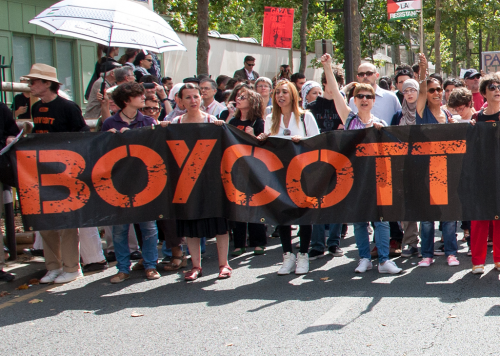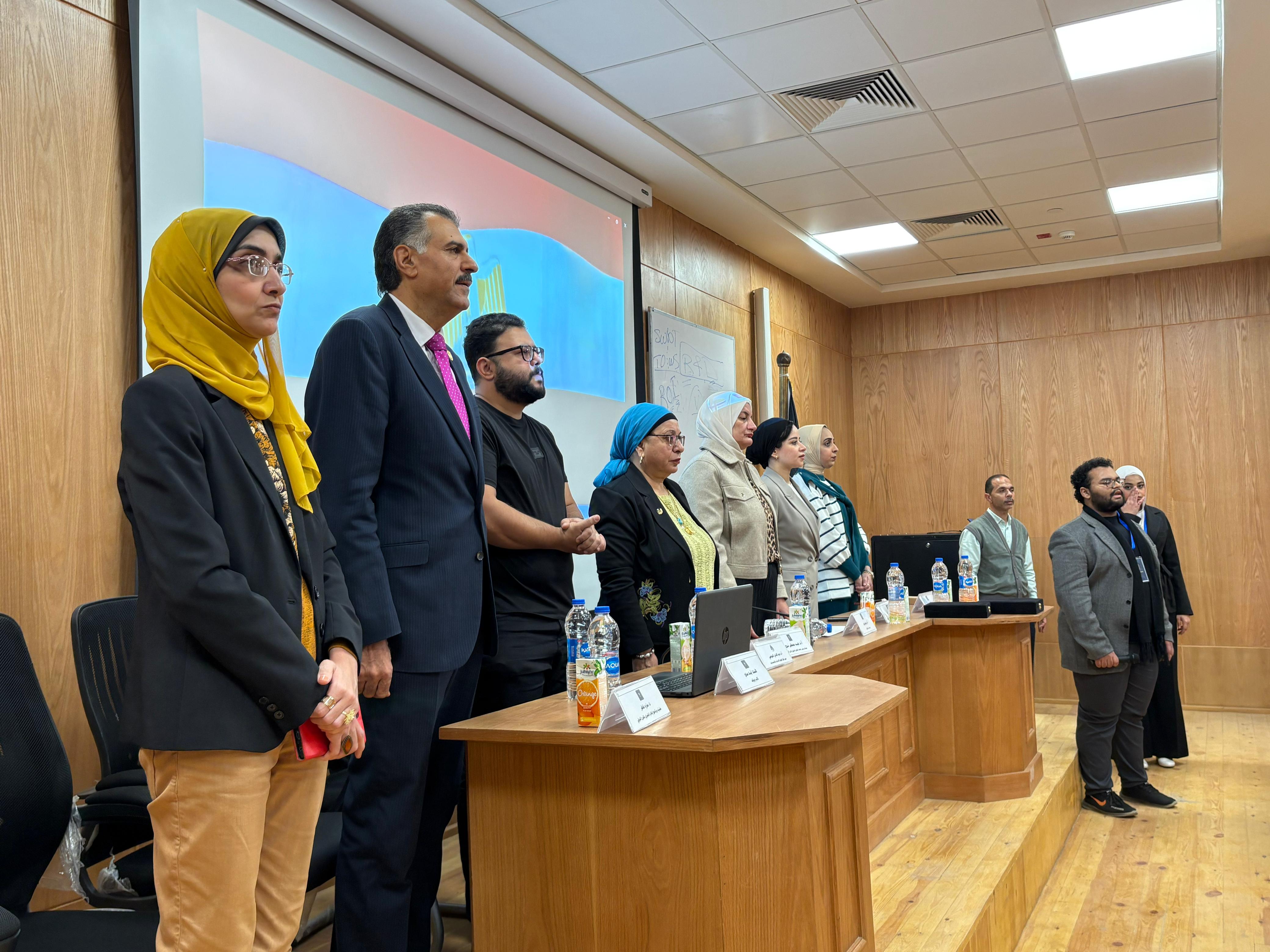Boycotting: Does it work?
 close
close
![]()


By: Raneem Ahmed & Raghad Saher
The word boycott refers to the refusal to purchase a product or partnering up with an organisation as a way of expressing severe disapproval towards a political cause.
The concept of boycotting dates back to the 19th century, but it emerged suddenly nowadays following the Israel war on Gaza in multiple states.
Primarily, in Egypt when images surfaced of the fastfood chain ‘McDonald`s’ feeding the Israeli soldiers amidst the conflict which consequently, sparked the online boycott movement on 10th October 2023 that not only involved fast food chains that supported the war but other Western organisations as well.
The movement started on social media and immediately got the attention from the Egyptian society especially the youth, where they began to inform and raise awareness regarding the campaign by continuously posting about Egyptian local brands as a substitute for the blacklisted products.
BDS Boycott, Divestment, Sanctions is a Palestinian-led movement promoting boycotts, divestments, and economic sanctions against Israel has issued a list of companies to boycott.
The following are some of the boycotting targets of the BDS movement:
● Consumer targets: Siemens, Puma, Adidas, Carrefour, AXA.
● Corporate targets: Amazon, Google, Netflix, TKH security, Hyundai, PepsiCo.
● Fast food targets: McDonald’s, Burger King, Papa John’s, Pizza Hut, Domino’s pizza.
And on the other side, the companies’ response to this campaign was by donating money to organisations that support Palestine; for instance, a popular supermarket operating in Egypt has donated 30 million pounds to the Egyptian Red Crescent in addition to another fast food company that has donated in support of the Egyptian government`s efforts to lessen the suffering of Palestinians and to assist in relief efforts.
Similar to previous social campaigns, and despite of the popularity of the boycotting concept, and how emotionally people are attached and reacting to this, there is controversy regarding boycotting, some people are opposed to the whole ordeal arguing that the Egyptian companies hold the trademarks and are the manufacturers with the franchise rights; therefore, it is the Egyptian people, not the parent companies, who stand to lose from the boycotts.
.
“I am not against the idea of boycotting. My main issue is that it`s not the most practical idea since a lot of Egyptian workers are harmed in the process. We can provide better job opportunities for the people first and then boycott,” said Mohamed Radwan, Mass Communication student.
On the other hand, the majority of people disagreed, claiming that companies that are being boycotted may see a decline in profits. In exchange for the right to use trademarks or to manufacture particular goods and services, they have an impact on the fees paid to parent companies abroad.
“It is the only action that we can take to support our brothers in Palestine, it`s going to damage their industry somehow,” said Farida Waleed, Mass Communication student.
Additionally, the supermarket owners at Cairo University were questioned about their views on the movement, and controversy they all turned out to be in favour of it. They contended that no damages are being done to the business and since there is an Egyptian substitute for each product; therefore, the business isn`t losing. The only issue is that the Egyptian companies weren`t ready for this turnover but ultimately the Egyptian society as a whole is benefiting from it.
.






15-02-2026 Faculty of Mass Communication

15-02-2026 Sports

15-02-2026 Sports

15-02-2026 Faculty of Mass Communication

23-06-2023 Sports 4154
...
tips from the head of dmc channels group- mr.hesham soliman02-08-2023
video 3400...
Exclusive Interview with the Prominent Host (Eman Ezz Eldin) for EMccu today27-10-2022
video 1232...
Culture of Photos Event Guests` Interviews (Pt.2)01-04-2023
video 1144...
Culture of Photos Event Guests` Interviews (Pt. 1)01-04-2023
video 1029...

27-10-2022
video 3852